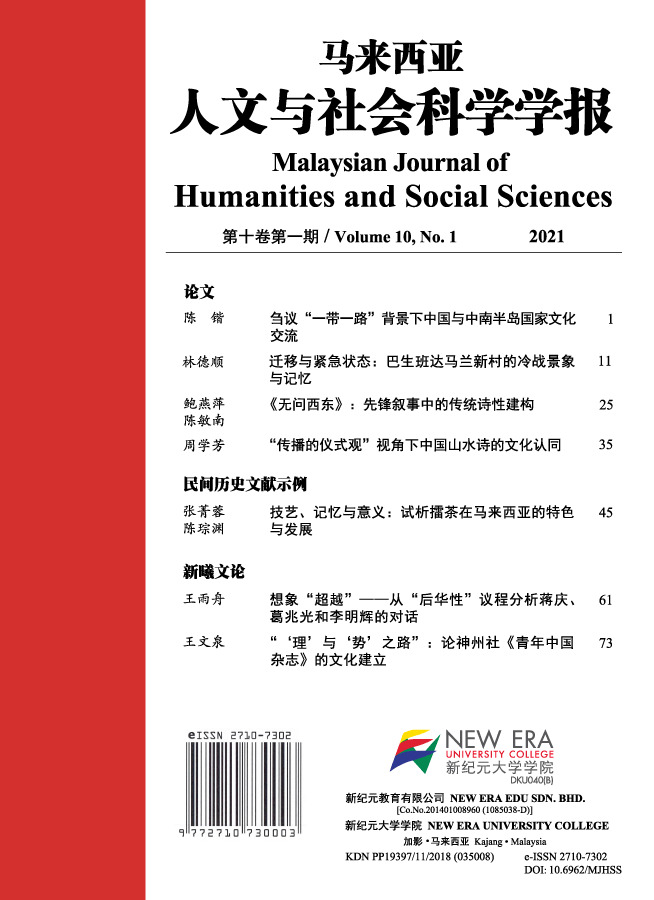想象“超越”一一从”后华性”议程分析蒋庆、葛兆光和李明辉的对话 Imagining "Transcendence": the Dialogue between Jiang Qing, Ge Zhaoguang, and Lee, Ming-huei from the Perspective of "Post-Chineseness" Agenda
Keywords:
后华性、相对主义、前置共性、中国观, Post-Chineseness, Relativism, Prior-resemblance, Conceptions of ChinaAbstract
本文援引“后华性”的架构阐释三者如何藉由文化资源建构其与中国的关系,从而解析他们的身份策略、情感和观念。同时,本文亦欲与“后华性”概念对话,发掘使用中国概念的更多可能性。本文在此意义上申论,诉诸中西二元对立和相对主义,是中国文化内在群体之中行为者的“前置共性”,他们于在此前提下展开识别、建立关系的“后华性”议程。所谓“必须应对西方”的“前置共性”,并不是本体论上的二元对立,也不是为了识别自我与他者而建立的策略性的本质主义,而是一种共同的焦虑、价值,因此亦是一种“关系性”的存有。在“前置共性”下进行的“后华性”议程因思想者身份策略、角色和位置的差异,形成了不同的中国观、对“中国”概念的运用方式和与“中国”的关系。
Invoking the framework of "post-Chineseness", this paper explains how Jiang Qing, Ge Zhaoguang and Lee, Ming-huei constructed their relationship with China through cultural resources, and examines their identity strategies, emotions and concepts. At the same time, this paper also intends to have a dialogue with the concept of "post-Chineseness" in order to explore more possibilities of using the concept of "China". ln this sense, appealing to the binary opposition and relativism is the "prior resemblance" of the actors in the inner groups of Chinese culture. They launch the "post-Chineseness" agenda of identifying and establishing relations on this premise. This "prior resemblance" is neither an ontological binary opposition, nor a strategic essentialism to identify the self and the other, but a kind of common anxiety and value. Thus, it is also a kind of "relational being". Because of the different positions of the actors, the differences in the concept of "China" and the ways of using the concept of "China", the "post-Chineseness " agenda carried out under the "prior resemblance" has formed different views of China, ways of applying the concept of "China" and relations with "China".




